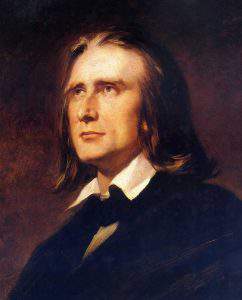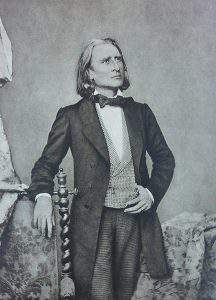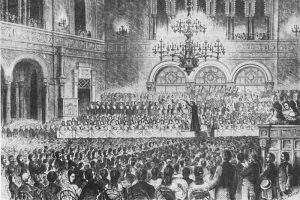Ferenc Liszt, the first pop star?

Change language:
Index.hu believes that in the world of pop music industry full of “celebrity factories” it’s hard to imagine that it wasn’t the beat era that brought about the first star musicians. Based on the agreement between music historians, the first pop idol appeared in the 1840s, and he was a Hungarian composer and pianist. Some people believe that Ferenc Liszt was the Elvis Presley of the 19th century and that, until Beatles, no one was surrounded with such a euphoric fan cult like he was. Most contemporary sources confirm this opinion.
Ferenc Liszt was born in 1811, the year of the Great Comet, in Doborján (today Raiding in Burgenland) and he was kept count of as a wonder child, just like Mozart. His father, Ádám Liszt enrolled him to piano classes at the age of 7. His talent was acknowledged by Carl Czerny, Antonia Salieri and Beethoven at the age of 10, and he already gave concerts in Paris and London at the age of 12.
The virtuoso pianist and brilliant composer didn’t only become one of the best contemporary composers of the time (Wagner, Chopin, Berlioz ) as a young man, but he also became an idol among the audience, especially women. This was partly due to the image that he consciously created: the handsome young man didn’t pull his punches on the stage, he smoked cigarettes during his performances, passionately whipped his medium-long hair, his instrument sometimes suffered his dramatically ecstatic style.

Between 1839 and 1847 he toured around Europe. His full-house piano shows were visited by many women, who were enchanted by the handsome and charismatic musician. According to contemporary reports, some of them even swooned as soon as he appeared on the stage. Women fought for his gloves, handkerchiefs and cigarette stubs.
His fans threw scarves, jewellery onto the stage after he finished performing. They tried to follow him everywhere; those who managed to get close to him tried to cut off a strand of his hair so that they could put it into a pendant and wear it as a necklace. His portrait was worn on brooches, cameos, like people wear the pins of famous bands nowadays.







